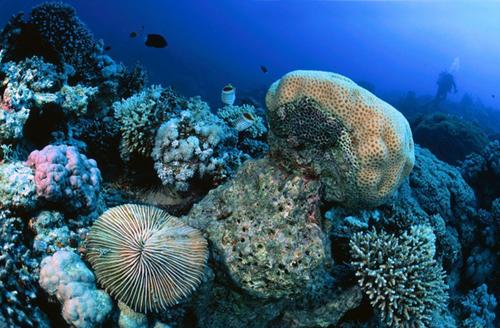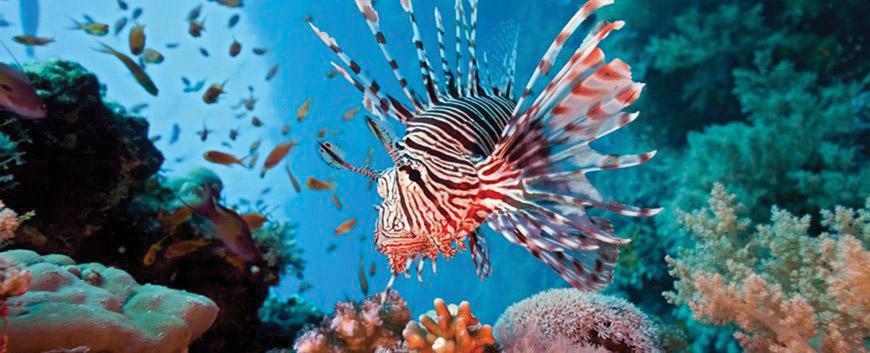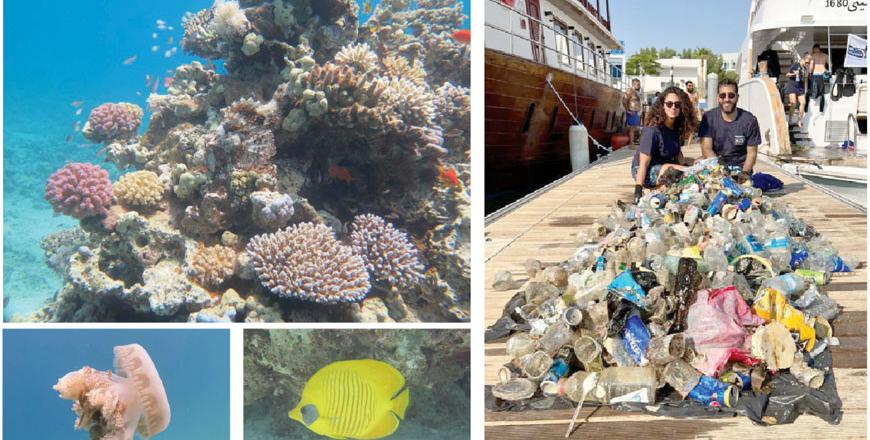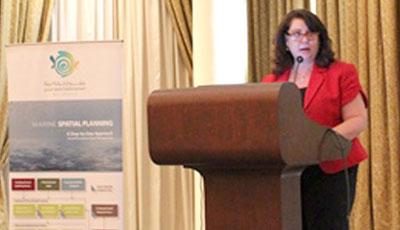You are here
Divers, students move 7,000 coral reef colonies to protect biodiversity
By Dana Al Emam - Oct 21,2015 - Last updated at Oct 21,2015

Over 70 per cent of coral reef colonies at the new Aqaba Port were moved to the marine park under a project to preserve the coastal city’s iconic coral habitat (Photo courtesy of Aqaba Marine Park)
AQABA — A biodiversity protection project has successfully translocated over 7,000 coral reef colonies from the new Aqaba Port to the Aqaba Marine Park (AMP).
The translocation, which is part of a recently concluded three-year project, aims to preserve Aqaba's iconic coral habitat, since the coral reef colonies are in shallow waters, easily accessible and close to major population and industrial centres.
Project Director Nidal Oran said over 70 per cent of coral reef colonies at the new port were moved to the marine park, with survival rates of transplanted colonies exceeding 85 per cent.
He noted that a key factor in the project’s success was training six university students and engaging them in the entire process, in the hope that future bio-conservation projects in Aqaba, some 330km south of Amman, will build on their expertise.
The project, funded by the Global Environment Facility and implemented by the Aqaba Special Economic Zone Authority (ASEZA) and the UNDP, aims at mainstreaming biodiversity conservation to promote more effective management of the Aqaba coastal zone.
Its four pillars are enhancement of knowledge-management systems for coastal and marine biodiversity; promotion of biodiversity-friendly investment and development; improvement of institutional capacity for coastal zone management; and biodiversity conservation, including coral reef protection.
"A second phase for the project is required in order to build on the momentum that the first phase created," Oran told The Jordan Times, in an interview, attributing the successes of the project to the "high" level of coordination between ASEZA and UNDP.
He added that while "good" measures for environment protection exist on paper, strict implementation and monitoring will be “critical” once the new port is running.
For her part, UNDP Programme Manager Majida Alassaf said the project responds to "urgent national coastal and marine needs" and provides a "clear vision" of how to incorporate biodiversity protection into policies, programmes and development activities in Aqaba.
The "Marine Biodiversity Protection and Sustainability" project, which is an example of Jordan's commitment to the UN Decade on Biodiversity, has also enhanced institutional and human capacities in the field, Alassaf added.
"Jordan is home to some 2,500 types of plants… including 100 endemic kinds and 375 rare varieties. In addition, Jordan is home to 47 types of wild endangered animals," she said, citing another UNDP project implemented in 11 countries, including Jordan, to protect birds migrating along the Dead Sea Rift and the Red Sea.
AMP Director Abdullah Abu Awali said the park, which is an affiliate of ASEZA, witnessed the beginning of the coral reef translocation process back in 2012.
He added that the process was carried out by qualified AMP divers as well as divers from other private and public institutions, highlighting several follow-ups on the performance of the colonies by an international expert and teams from the park.
A large number of coral reef colonies needed to be moved to the park, a process that generally requires two to four years of work. However, bureaucratic delays necessitated moving the colonies to the southern shore in only three months, Abu Awali noted.
"We saved what we could save," he told The Jordan Times in a recent interview, citing signs of normal life surrounding the new colonies, such as an increasing number of fish.
Meanwhile, ASEZA environment commissioner Suleiman Njadat highlighted the role of such projects in sustaining coastal life, stressing a need for "comprehensive" management of marine and coastline facilities.
Other components of the project included reviving environmental tourism, such as by engaging visitors in mountain climbing activities during their visits to Aqaba, according to Oran, who cited attempts to demonstrate the importance of environment protection to the public, not just to experts.
He mentioned among these initiatives a smartphone application that introduces users to the marine ecosystem and provides them with information on and photos of poisonous creatures.
The project allowed students like Tasneem Shandaq to take part in a year-long hands-on training programme that "created meaning for what [she] learned for four years at university".
The 2013 graduate told The Jordan Times that she now has more knowledge and experience regarding ecosystem preservation as well as regulations governing marine life in Jordan.
"I am currently pursuing my master's degree in marine science, and I am planning to write my thesis on fish reserves in Jordan, a topic I learned about through the project," she said, adding that her favourite part of the project was diving to plant the coral reef colonies in their new locations.
Related Articles
AMMAN — Jordan’s first marine reserve will play a major role in further attracting tourists and diving enthusiasts to the Red Sea city
Aqaba reefs face substantial dangers of man-made variety, mainly overfishing, litteringAround 44% of coral species recorded in Red Sea only
The UNDP and the Aqaba Special Economic Zone Authority (ASEZA) on Tuesday launched the executive plan for eco-tourism in the port city and a strategy for environmental awareness on marine and coastal environments.



















